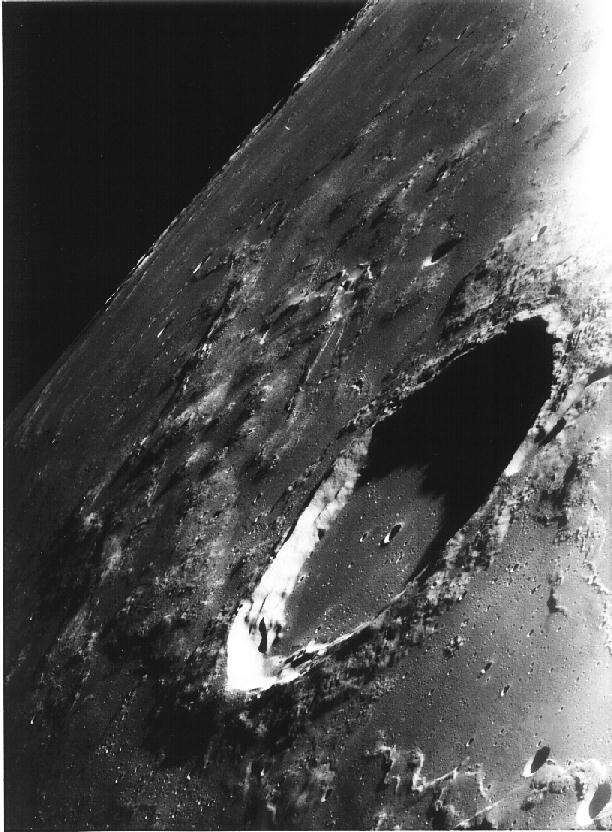Sometimes all you are thinking is nothing. Or at least, sometimes all you are doing is rhythm. There is this amazing solo piano piece by Chopin. It starts off in F minor, two slow deep notes, then some more, maybe it's Rakhmaninov, but then it isn't and it lightens and you hear the motif and you can kind of discern the timbre of the piece. Your brain stops trying so hard because a lot of the work is done. The rest is easy, the rhythm becomes you. Or at least, you can tap your hand or nod your head without new calculations. Maybe you adjusted your stride a little, maybe you noticed a particular colour that is on that sign and on that thing there. One sense filters another and you keep moving. But then something different happens. Things are always happening of course: there is somebody you've seen before; there is a cascade of notes. It is just that sometimes all you are thinking is nothing, and sometimes you are already not there. On the one hand, nothing much has changed, the rhythm is maybe a pinch slower, but the key hasn't changed. You are in the same space as before and all the motions are familiar. But there is more. Not more like somebody puts a cube of ice into your drink and it overflows, but more like you look down and notice 'Hey, my drink has ice in it…' The new situation isn't really a new situation, it is the same as before, but there is more. In the piece of music there are now individual notes that sit amongst but distinct from all the rest. They seem to be at odds, but they still make sense. They are fundamentally similar, but colder, like ice in water. They float at the top, alien, at home.
to the you who is
Now you are aware of difference. Now your rhythm is intertwined with an offset counter-melody, something that is like being pulled in contrasting directions. When you thought you were moving right you realise you must also be moving left, you realise you must be moving forward but spinning. Let me repeat, nothing has changed, your actions are exactly as they were, but now everything is different, because you realise that these new notes have always been latent in your understanding. If you think of the word 'drink', ice is a latent component. These things are part of the picture, part of the rhythm even when they are invisible. But this isn't the remarkable thing: so there is ice in your drink, ok, so what? The remarkable thing is that then the notes stop as suddenly as they began, the whole thing lasted maybe ten seconds. The music continues. You know that the latent notes are still there, but your ability to hear them has gone. It is like knowing that there is ice in your drink but not being able to look or check in any way to make sure. You have to believe in echoes. You have to believe in matter to exist without confirmation. You have to believe that things are deeper than they appear. The song goes on being a song, and you can almost fool yourself that what you hear is everything again, that only the things that are happening are happening. But there is that echo that is right there. It doesn't exist in the present. It exists in the past. But now you are aware of your breathing, or of where you know that person from and this is like being overly self-conscious. If you don't do something with this awareness it can feel like something in you becomes paralysed. Knowledge is ability, but knowledge without action can disable. So you really want those notes to come back so you can move that way or act that way or say that thing, but the moment is gone and if you do that's called being crazy. But it isn't crazy, it's only latent. There is ice in every 'drink'. But only if you don't check. So stop thinking about it and keep on moving like it doesn't matter. The song is back to 'normal' and there is plenty to enjoy. It really is a good song. You can slip back into it's rhythm comfortably, and because it is only music that's fine. Semantics, A, D, C, F, drink, ice, whatever. Everything can be erased by examining its language.
everyone already
Unless it is repeated often enough. In the Chopin song, twice suffices to be often enough to persuade you that you are always thinking about something, even if sometimes all you are thinking is nothing. Because it happens again. And it is sort of devastating. Not devastating in that it causes any sort of destruction, but devastating because your suspicions are confirmed, you take a look and the ice is still there. But now you are guilty because you needed evidence to prove true to yourself what you knew must be. Your joy is tempered by your need. And that is like realising you are an addict, because you are acknowledging a power that isn't reason (like pure mathematics). It is evidence (like applied physics). You can take heart though, because luckily it is only a song and is therefore temporal by nature. Everyone is crazy. And everyone is devastated sometime. It is the devastations that frame our rhythms that allow us to move forward, even with the awareness that forwards is sometimes backwards. That sometimes all you are thinking is nothing. Or at least, sometimes all you are doing is rhythm.
futures
John Ward Knox
Wed 22 October 6pm
A Centre for Art. Level 3 Achilles House.
23 October – 8 November. 1-6pm Thursday, Friday, Saturday
Friday, November 14, 2008
Subscribe to:
Post Comments (Atom)

No comments:
Post a Comment